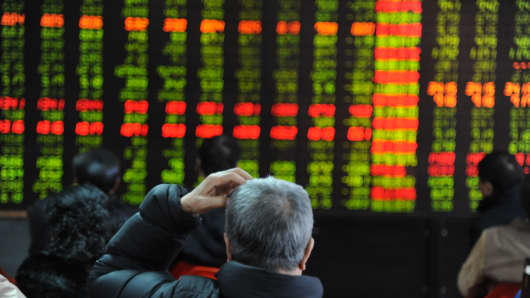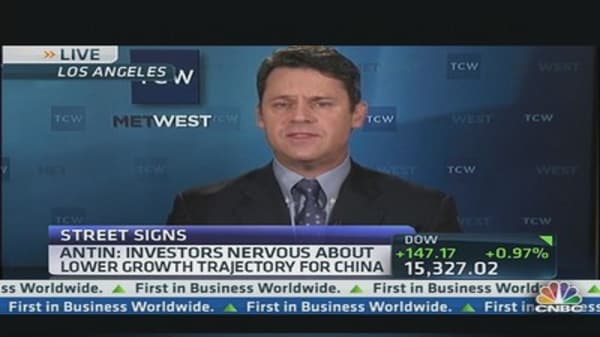Why have emerging markets been hit so hard by talk of an end to the Fed's bond buying program? You have to go back to the basic belief about the program: that much of the money that flooded the economy ended up in stocks, and that much of that money went to overseas investments.
There was a particularly strong liquidity-induced exuberance in emerging markets like India, Turkey, Mexico, Brazil, South Africa, even Indonesia.
But the opposite trend is now evident: moderating liquidity is putting a squeeze on emerging markets. The Fed's tidal wave of liquidity has distorted the risk curve. We are now seeing are pricing of that risk curve. The stronger dollar--and higher yields in the U.S.--has clobbered currencies and bonds.
And no wonder: U.S. investors are the biggest foreign investors in the world. When U.S. rates start backing up, you get a magnified effect. So everyone's long emerging markets, the bids disappear, and you get these crisis-type moves.
Throw in slow growth in China--a separate but equally important problem--and you have a stampede out.
What to do if you own emerging market stock,bond, or currency funds? A few observations:
- Volatility is a fact of life for these funds. Emerging markets routinely move in 25 percent swings in any given year, so while the 14 percent decline in the iShares Emerging Market ETF (EEM) in the last 6 weeks is steep, it has happened before.
- Because of the volatility, many investors might be surprised that any losses they have experience may be manageable. For example, the EEM, at $37 and change, is close to it's average price of roughly $39 since mid-2009. You might find you have had very little, if any, losses.
- How will we know when we are near a bottom? Look for a drop in volatility, and some differentiation. I mean look for certain emerging market countries starting to outperform other emerging market countries. That's a sign that the panicky money is gone and the real investors are trying to pick winners.
Once things calm down, I am sure there will be calls that these markets are now a relative bargain. But we are not there yet.
China: a bigger story than the Fed? Reports that Chinese banking authorities are trying to tighten credit are a major reason emerging markets are down today. This may be a bigger story than the Fed.












